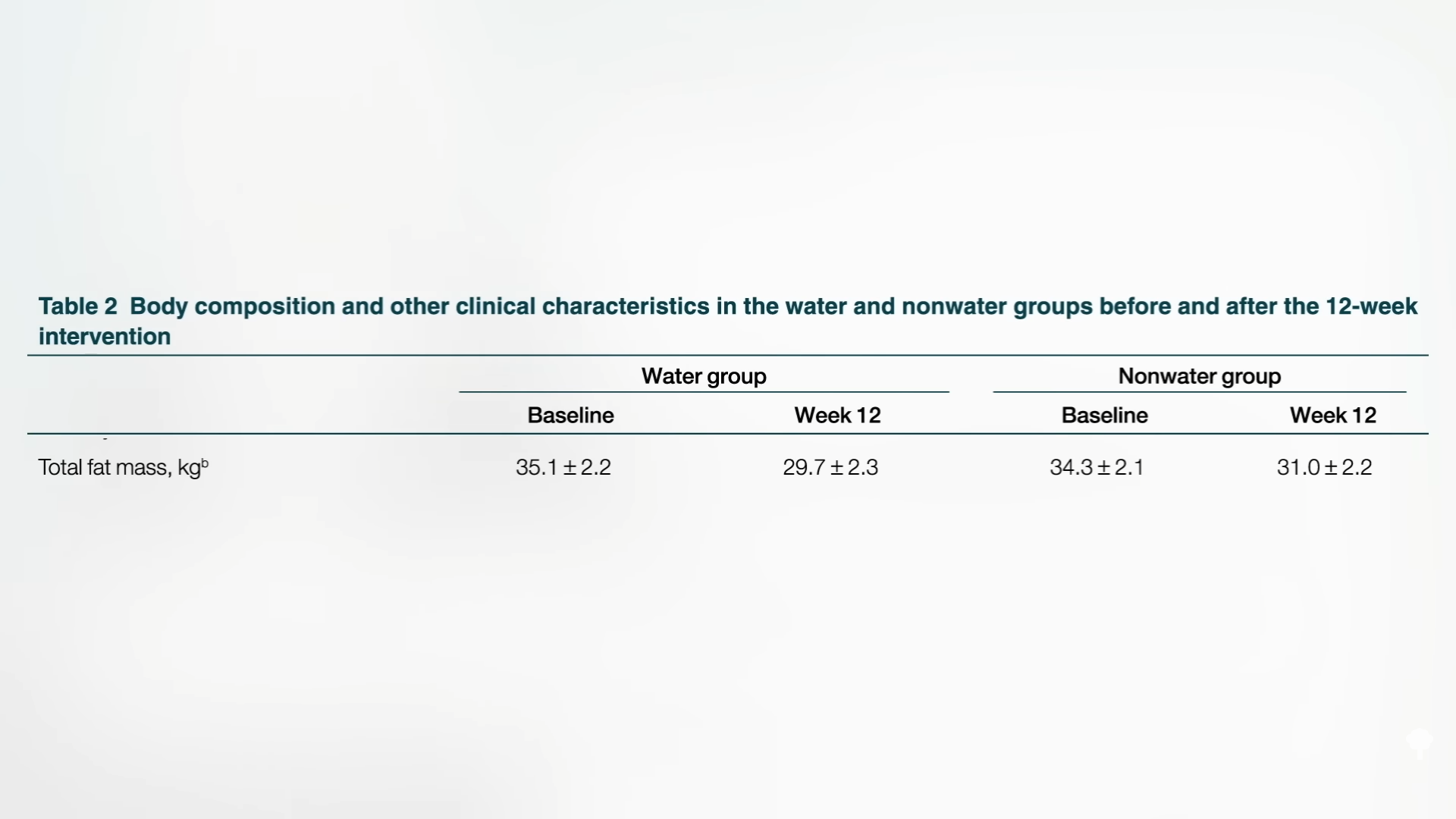If you drink two cups of water, the adrenal hormone noradrenaline can surge in your bloodstream, similar to the response of smoking a few cigarettes or having a few cups of coffee.
Given the 60 percent surge in noradrenaline within minutes of drinking just two cups of water, as shown in the graph below and at 0:13 in my video What Is the Safest Metabolism Booster?, might one be able to get the weight-loss benefits of noradrenaline-releasing drugs like ephedra—without the risks? You don’t know until you put it to the test. Published in the Journal of the Endocrine Society, the results were described as “uniquely spectacular.” Researchers found that drinking two cups of water increased the metabolic rate of men and women by 30 percent. The increase started within ten minutes and reached a maximum within an hour. In the 90 minutes after drinking one tall glass of water, the study participants burned about an extra 25 calories (100 kJ). Do that four times throughout the day, and you could eliminate 100 additional calories (400 kJ). That’s more than if you had taken ephedra! You’d trim off more calories drinking water than taking weight-loss doses of the banned substance ephedrine (the active component of ephedra) three times a day. And we’re just talking about plain, cheap, safe, and legal tap water.
Using the Ten-Calorie Rule I’ve explained previously, drinking that much water could make us lose ten pounds over time unless we somehow compensated by eating more or moving less. Concluded one research team, “In essence, water drinking provides negative calories.
A similar effect was found in overweight and obese children. Drinking about two cups of water led to a 25 percent increase in metabolic rate within 24 minutes, and it lasted at least 66 minutes, until the experiment ended. So, just getting the recommended daily “adequate intake” of water—about 7 cups (1.7 L) a day for children aged 4 through 8, and for ages 9 through 13, 8 cups (2.1 L) for girls and 10 cups (2.4 L) for boys, as shown below and at 1:45 in my video—may offer more than just hydration benefits.

Not all research teams were able to replicate these findings, though. For example, one found an increase of only about 10 to 20 percent, while another found only a 5 percent increase, and yet another team found effectively none at all. What we care about, though, is weight loss. The proof is in the pudding. Let’s test the waters, shall we?
Some researchers suggest that the “increase in metabolic rate with water drinking could be systematically applied in the prevention of weight gain….” Talk about a safe, simple, side-effect-free solution. It’s free in every sense. Drug companies may spend billions of dollars getting a new drug to market. Surely a little could be spared to test something that, at the very least, couldn’t hurt. That’s the problem, though. Drinking water is a “cost-free intervention.”
There are observational studies suggesting that those who drink four or more cups (1 L) of water a day, for example, appear to lose more weight, independent of confounding factors, such as drinking less soda or exercising more. What happens when you put it to the test?
In 2013, “Effect of ‘Water Induced Thermogenesis’ on Body Weight, Body Mass Index and Body Composition of Overweight Subjects” was published. Fifty “overweight girls”—who were actually women, aged 18 to 23—“were instructed to drink 500 ml [2 cups] of water, three times a day, half an hour before breakfast, lunch, and dinner, which was over and above their daily water intake” and without otherwise changing their diets or physical activity. The result? They lost an average of three pounds (1.4 kg) in eight weeks. What happened to those in the control group? There was no control group, a fatal flaw for any weight-loss study due to the “Hawthorne effect,” where just knowing you’re being watched and weighed may subtly affect your behavior. Of course, we’re just talking about drinking water. With no downsides, why not give it a try? I’d feel more confident if there were some randomized, controlled trials to really put it to the test. Thankfully, there are!
I hate it when the title ruins the suspense. “Water Consumption Increases Weight Loss During a Hypocaloric Diet Intervention in Middle-Aged and Older Adults.” Overweight and obese men and women randomized to two cups of water before each meal lost nearly five pounds more body fat in 12 weeks than those in the control group, as shown below and at 4:08 in my video. Both groups were put on the same calorie-restricted diet, but the one with the added water lost weight 44 percent faster.

A similar randomized controlled trial found that about 1 in 4 in the water group lost more than 5 percent of their body weight compared to only 1 in 20 in the control group. The average weight-loss difference was only about three pounds (1.3 kg), but those who claimed to have actually complied with the three-times-a-day instructions lost about eight more pounds (4.3 kg) compared to those who only drank the extra water once a day or less. This is comparable to commercial weight-loss programs, like Weight Watchers, and all the participants did was drink some extra water.
The video I mentioned is The New Calories per Pound of Weight Loss Rule.
If you missed my previous video, see The Effect of Drinking Water on Adrenal Hormones.
For all the specifics, check out Optimizing Water Intake to Lose Weight, coming up next.